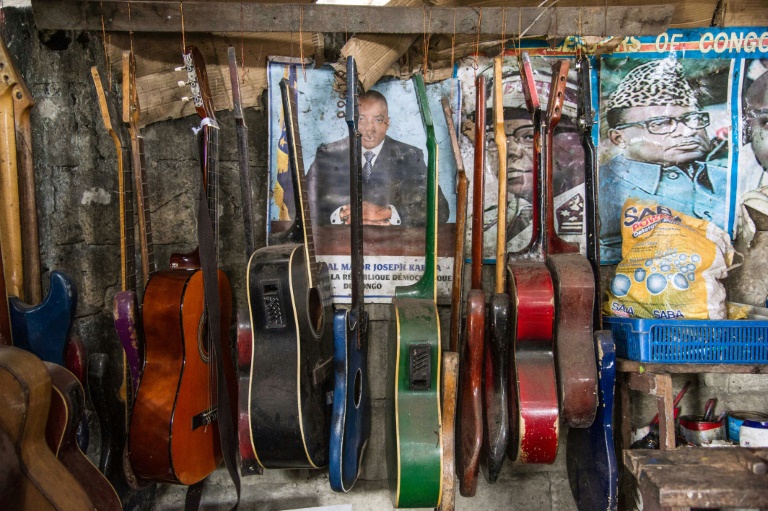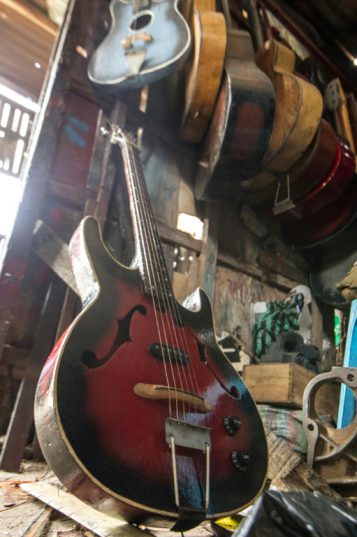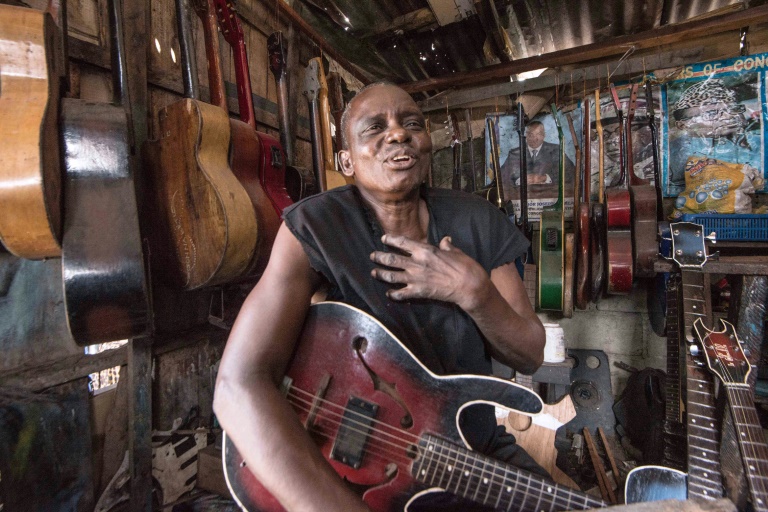Jake White says breakdown ‘a mess’, first half errors cost Bulls
Calling themselves Staff Benda Bilili, the penurious band wowed audiences with Congolese rumba, combining pounding rhythms with scintillating melodies and solos.
As unique as the group’s tale of their rise from the streets was their gritty guitar sound — all the work of a modest, self-taught Congolese luthier, Jean-Luther Misoko Nzalayala, who goes by the trade name of Socklo.
Benda Bilili wielded instruments in eccentric shapes and exuberant colours, their frets, bridges and nuts made from scrap metal that had been cut and bent by Socklo’s rudimentary tools, producing an exceptional timbre.
“It was powerful, bright, full-bodied and yet as raw as an uncooked onion, fizzing with the kind of raunch that many rock guitarists have been searching for in vain since the end of the 1960s,” Andy Morgan, a specialist in African music, recorded on his blog.
As a youngster, Socklo wanted to be a football player, but he fell sick with rheumatism, “and that’s what pushed me into music”.
The notion of making a guitar came to Socklo when he was still in secondary school, and wondered if he could reproduce the instrument that he was learning to play.
“My first guitar was a joke,” he says with a laugh.
“If you put on the strings and tried to tune them, the fretboard bent — there was no way you could play it.”
The young Socklo studied a while at the Higher Institute of Applied Techniques (ISTA) in Kinshasa where he “did electronica”.
He went on to sign his guitars “Ir Socklo” — the “Ir” stands for “Ingenieur” (French for engineer) and then launched his career as a luthier in 1978.
Over the decades, thousands of instruments have emerged from his workshop in the rundown Lemba district of Kinshasa — a hut built of wood planks, breeze blocks and sheet iron. The floor is littered with wooden debris.
On a makeshift workbench, Socklo employs the simplest of hand tools: a saw, a plane, a few wooden chisels and a hammer and anvil to make frets from pieces of metal.

Musicians who have tried out Socklo guitars agree that they have a special sound, which is typically Congolese
On the wall are portraits of successive Congolese leaders Mobutu Sese Seko (1965-1997), Laurent Kabila (1997-2001) and his son Joseph Kabila (in power since 2001). They share the space with an ageless poster of Michael Jackson.
His hair cropped short and turning white, the 57-year-old Socklo explains that he learned how to make guitars on his own. Nowadays, he is training apprentices as best as he can.
– Pragmatist without power –
Over the years, Socklo has managed to get a jigsaw and a few other electronic tools, but using them is hard because of Kinshasa’s frequent power cuts, so he is pragmatic.
“On days when I have power, I do all the work that needs electricity, and when there’s no current, I just get on with the rest.”
Musicians who have tried out Socklo guitars agree that they have a special sound, typically Congolese. For the sound box, the maker uses locally produced plywood, while the fretboard can be made of wenge, a tough tropical wood that can be hard to work.

Socklo uses locally produced plywood and wenge, a tough tropical wood that can be hard to work, to craft parts of his guitars
For a basic acoustic guitar, Socklo makes treble strings from brake cables that he patiently cuts to size. Bass strings come from a machine he invented that spins copper wire.
When it comes to electric guitars or electro-acoustic instruments, Socklo buys the pickups, “preferably European ones,” as it would be too onerous to make them in his workshop.
– Jupiter & Pepe –
In all, Socklo believes he has “made and sold more than 10,000 guitars,” but the estimate is on the high side, since he also says that he turns out between two and three guitars a week. Moreover, some special orders require work that takes more time.
But one thing is certain. At prices varying from $35 (30 euros) and $50 (43 euros) for an acoustic guitar or bass and rising to between $150 and $200 for an electric or electro-acoustic guitar, Socklo’s instruments are affordable even in the dire poverty that is the daily lot of most of the 10 million residents in Kinshasa.
Countless musicians in Democratic Republic of Congo, including Jupiter Bokondji (Okwess International) and Pepe Felly Manuaku, have used guitars made by Socklo or his rival across town, Almaz.

Socklo turns out on average between two and three guitars a week at prices that are affordable even in the poverty of Kinshasa
In Europe, his reputation has been spread by the likes of Belgian jazz guitarist Philip Catherine. His visitors’ book in Kinshasa testifies to a list of clients hailing from Britain, France, the United States and Venezuela.
With orders piling up, Socklo has little time left to play music himself. “I used to play the guitar and I made people dance,” he says cheerfully, “but today it’s my guitars that lead the dance.”
Download our app and read this and other great stories on the move. Available for Android and iOS.